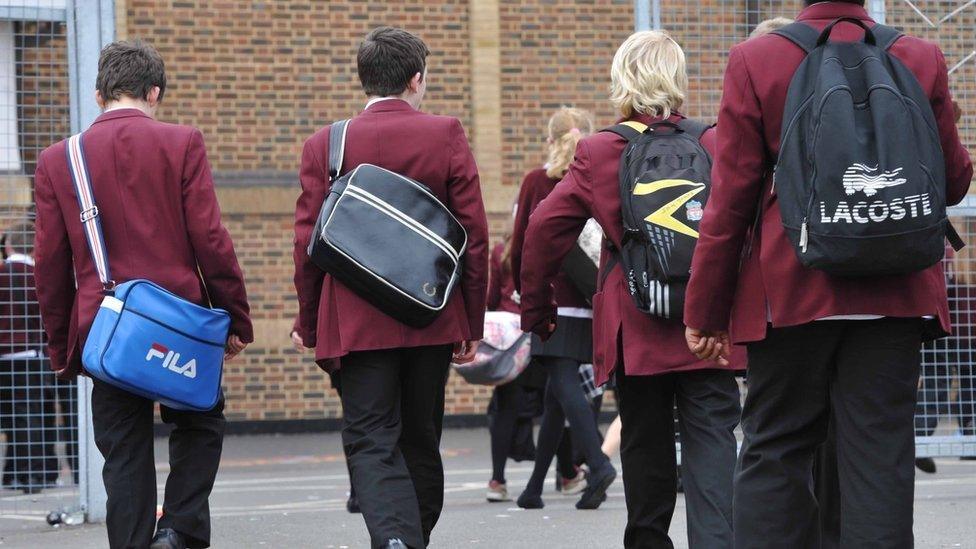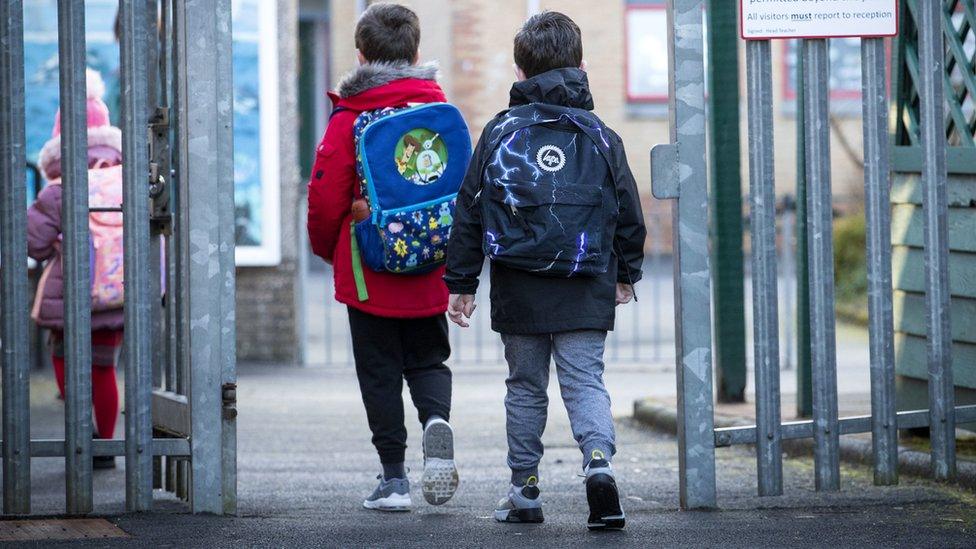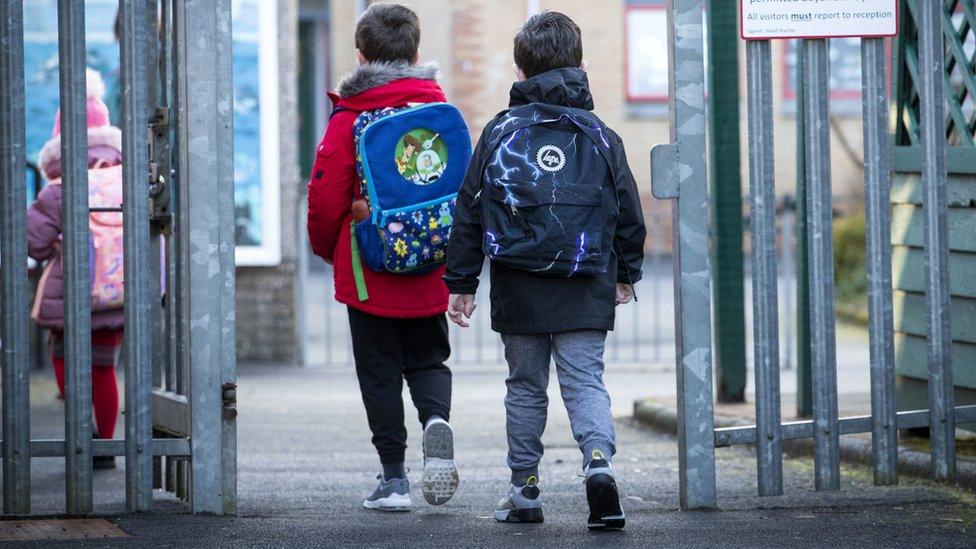Schools 'a lifeline to many students' in past year'
- Published
- comments

School staff have been giving clothing, food and furnishings to families that have been struggling financially in the coronavirus pandemic, teachers say.
Some pupils have gone to school without winter coats, while others have been worried about having enough to eat, a National Education Union poll suggests.
The findings come as the NEU begins its annual conference on Wednesday.
The Department for Education says it has invested £2bn to help pupils in England in the wake of the pandemic.
The NEU surveyed 10,696 members in England, Wales and Northern Ireland in March and concluded that schools and colleges had been a "lifeline" to many disadvantaged students during the past year.
Asked about the poverty they had witnessed, one union member said: "We have children that aren't clothed properly, without coats in winter, or have holes in shoes, and my school's inclusion team are excellent at working with the families to get them the support they need quickly and efficiently.
"We also have a stock of spare clothes that on occasion we can give to families."
Another NEU member said: "I called home during the first lockdown and spoke to an older sibling who was panicking because the free school meals vouchers email hadn't arrived.
"It was the evening before a bank holiday weekend and there was no food in the house - I will never forget the panic in that girl's voice."
Another responded: "We have had pupils and their families move into hostels during the pandemic when they were evicted.
"They were re-housed - but literally were given a house. No furniture, oven, fridge, washing machine, no carpets. Nothing. We rallied as a school and furnished two homes."
Dr Mary Bousted, joint general secretary of the NEU, said: "It is now beyond doubt that child poverty is on the rise. The effects can last a lifetime, and young people have one chance in education.
"There is no doubt, too, that schools and colleges have been going beyond the call of duty for them during this past year, as they always do.
"The government, by contrast, spent much of 2020 voicing warm words about its concern for the disadvantaged, including when mounting arguments for the wider opening of schools and colleges in September and January."
Yet it had "persistently failed to deliver for the young people in poverty", Dr Bousted said.
Catching up
The NEU survey also asked members about plans to help pupils catch up on lost learning over the past year.
Prime Minister Boris Johnson has made £1.7bn of "catch-up" funding available in England to help children who have faced disruption from school and college closures during the pandemic.
As part of the recovery package, summer schools will be introduced this year for pupils who need it most, and tutoring schemes will be expanded.
But only one in five (21%) of NEU members surveyed thought tuition programmes were an important mechanism for supporting recovery, according to the teaching union poll.

There are concerns that children have fallen behind academically during the pandemic
Only 2% thought lengthening the school day or school term were important ways of supporting pupils who have missed in-person learning.
More than four in five (82%) said schools and colleges should be given the flexibility to decide what is important for pupils' learning and well-being.
Around two in three teachers believe pupils should be supported through sport and exercise (68%) and increased creative and practical learning (66%).
Asked about the benefits that they feel have emerged from the pandemic and what should be retained, more than a third of union members (37%) appreciated the greater levels of communication they had experienced with families by telephone and video link, while 57% said online parents' evenings had been a positive step.
A spokeswoman for the Department for Education said: "We have already invested £1.7bn in ambitious catch-up plans, with the majority of this targeted towards those most in need, while giving schools the flexibility of funding to use as they believe best to support their pupils.
"We are working with parents, teachers and schools to develop a long-term plan to make sure all pupils have the chance to recover from the impact of the pandemic - and we have appointed Sir Kevan Collins as Education Recovery Commissioner to specifically oversee these issues."
- Published11 October 2022

- Published13 March 2021
